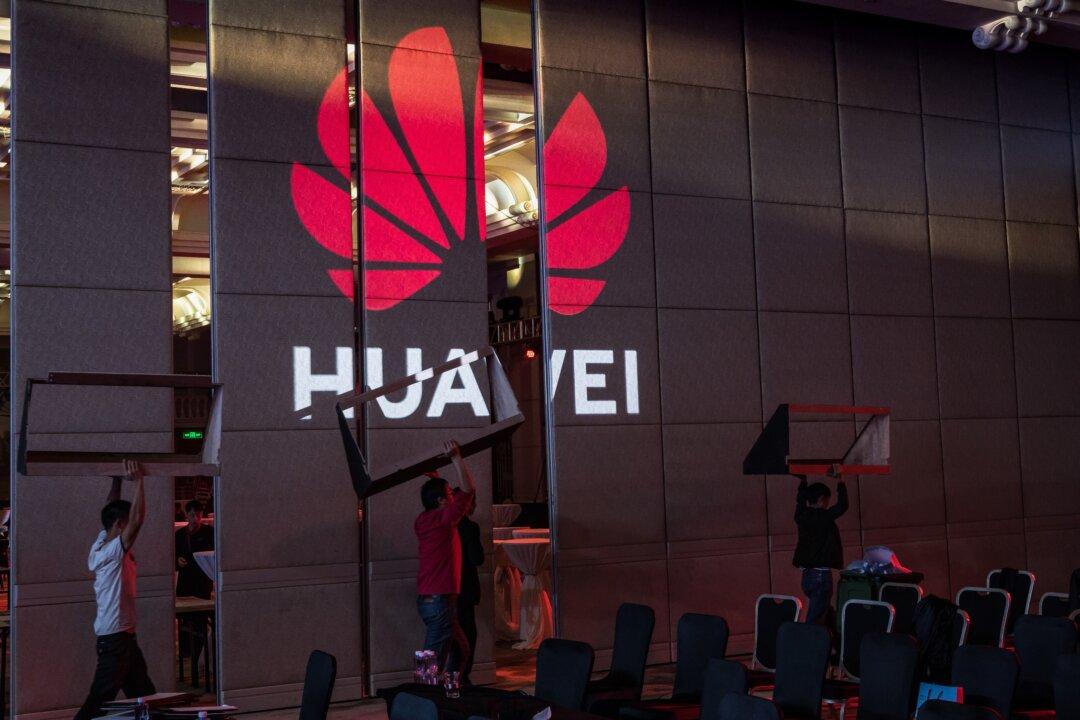Two people have been reportedly detained by the Chinese authorities for attempting to reveal how Huawei, the country’s military-linked tech giant, skirted U.S. sanctions barring sales of electronic equipment to Iran.
Yang Zhanqing, a co-founder of Chinese NGO Changsha Fengneng, told the Chinese-edition Epoch Times on Dec. 5 that seven former Huawei employees had talked to him about the roles they played in the company’s Iranian projects. According to Yang, at least two of these individuals have been detained for their outspokenness.
Huawei is China’s biggest tech company and spearheads Beijing’s push to dominate global 5G networks. The United States accuses Huawei of selling Iran equipment with U.S.-made components, which violates sanctions Washington had imposed on the Middle Eastern country.
Last December, Huawei chief financial officer Meng Wanzhou, also the daughter of the company’s founder Ren Zhengfei, was arrested by Canadian police in Vancouver at the request of U.S. authorities. She is currently being held on bail as the United States investigates her role in Huawei’s alleged acts.
Whistleblowing for Legal Leverage
Changsha Funeng is a non-government legal services organization based in Changsha, the capital of Hunan Province in southern China. The group specializes in helping dissidents and other vulnerable individuals.Yang Zhanqing founded Changsha Funeng in 2016 with Cheng Yuan, who this July was jailed, along with two other human rights lawyers, by the Changsha branch of the Ministry of State Security for the crime of “subverting state power.”
According to Yang, one of the individuals Changsha Funeng worked with is Li Hongyuan, the former Huawei employee whose 251 days of detention without any charge being made has created a stir on Chinese social media.
Li, who had worked for Huawei for 13 years, was terminated from his job and wrongfully detained by police after attempting to expose corruption within the company. He was eventually released due to a lack of evidence.
On Dec. 5, Yang said that Li also tried to expose the fact that Huawei had sold to Iran phone exchange machines and solar inverters which used U.S.-made Intel chips.
It is because of this information that Li has not yet been charged, as “Huawei considers its [selling of embargoed equipment to Iran] a business secret. It’ll be evidence of a crime that Huawei committed if it’s exposed to the public,” Yang said.
Yang, who lives in the United States, provided The Epoch Times with the names and other personal information of former Huawei employees who had spoken to him about the company’s dealings with Tehran. To protect their identities, they are referred to using pseudonyms.
“We had a WeChat group discussing how to expose Huawei does business with Iran. The group had seven or eight Huawei former employees at that time,” Yang said, referring to events in 2018. Those in the group planned to go to the media with their stories.
The former employees divulged their knowledge in hopes of gaining an advantage in their legal cases, as they fought for compensation upon having their employment terminated. “Exposing Iran-related projects was one of their solutions,” Yang said.
In one of the text messages that Yang provided, a former Huawei employee using the name “Radish” said that he worked for a project called Irancell between 2012 and 2014, the purpose of which was to build a mobile communication network in the country. He made several trips to Iran to assist with the system’s installation.
“My current passport has an Iran visa,” Radish texted in the WeChat group.
Another former employee called “Winter” said in the group that Huawei had “several projects” in Iran.
“Several former employees involved in selling Huawei products to Iran and were paid $100 per day for their business trip allowances … they have records of their Iran trips as well as receipts of the company’s payments,” Yang said.
Huawei Has ‘Come to Represent State Authority’
In 2018, Yang arranged for two of the former employees “Zhang Lu” and “Sishui Liunian” to meet with a reporter from a Hong Kong media outlet.Zhang Lu was the pseudonym of Li Hongyuan, the man who was detained for 251 days.
But on Dec. 16, one day before the scheduled meeting, both Zhang Lu and Sishui Liunian couldn’t be contacted. Sishui Liunian’s wife sent Yang a detention notice from the Shenzhen public security bureau, showing that Sishui Liunian was being held in the city’s No. 2 Detention Center.
Yang has been unable to reach Sishui Liunian or his family.
Zeng Meng, another former Huawei employee, was prevented from renewing his employment contract at the Huawei North African office for reasons of age. Feeling that he had been wronged, Zeng also took to social media to expose Huawei’s misdeeds.
On Dec. 30 last year, Zeng was detained in Thailand and extradited to Shenzhen on Jan. 8. Similar to Li, Huawei sued Zeng, initially for “leaking trade secrets” and then for “fraud” after police failed to produce evidence for the first charge. He was finally released on March 29. Yang said the cases demonstrate the influence Huawei has in the Chinese regime.
“To some extent, it’s already come to represent state authority,” he said. “They can do as they please, knowing they have backing.”
Yang knows more than 60 former employees who were wrongly laid off by Huawei, and said he was concerned about others, who, like Li and Zeng, were detained for speaking out.





